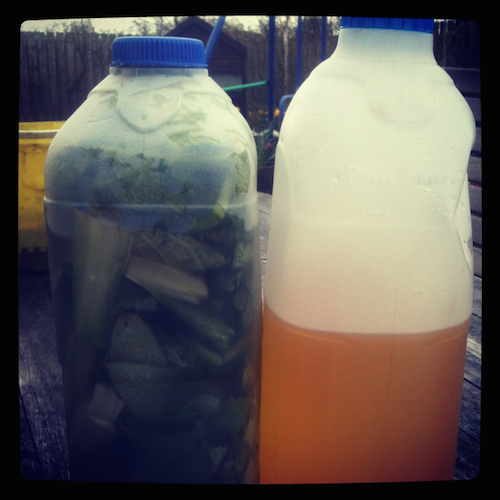Many an old gardening book is filled with reference to ‘Victorian Night Water’, this rather poetic sounding name refers to nothing more than just humble Urine.
Urine has been a source of fertility in gardening for centuries, upto around 1900 it was still common for communities to use ‘dry toilets’ and the contents to be used in Agriculture production, indeed many towns were against the installation of water toilets for fear of losing this source of fertility for their crops.
By Gareth Austin, DD Gardening Correspondant
Indeed the amount of excreta one person produces provides enough fertility to produce 250kg of cereals – and it is 250ks of cereal that one person needs to consume per year, so you could say that this source of fertility is the only true sustainable source of fertility.
Human faeces contains many enteric microorganisms which many sections of the population, such as elderly, pregnant women, children etc are extra sensitive to- whereas Urine contains very little of these enteric microorganisms so due to its hygenic properties and its high nutrient content it makes for a very desirable fertiliser.
Each year one person produces around 500l of Urine. Urine produces this Nitrogen in the form of Urea, a product which fertiliser manufacturers have produced synthetically for years – at a high environmental cost.
In trials on growing Cucumbers with A- Urine and B- Synthetic fertilisers the plants showed equal yields and qualities, with no differences in taste and no contamination via the microorganisms found in Urine. Urine is around 1% Nitrogen, so when applied at a rate of 1L/m2 this gives the same fertility as you would need to produce a field of Barley (100kg/ha).
An easy quick fertiliser to green up the lawn around the house, keep an empty milk carton beside the toilet and (easy for us men) use this to capture your urine, and when full simply splash this around the lawn or around garden plants as a fertiliser. This Urine can also be added to compost piles where you don’t have enough grass entering the bin, and works wonders when a ‘splash’ is added to black bags full of leaves.
The synthetic production of fertiliser has a massive effect on the environment, and as mentioned every one of us produces a sizeable about of free fertiliser each and every day, so is it about time we started to make better use of this?
Tags:










